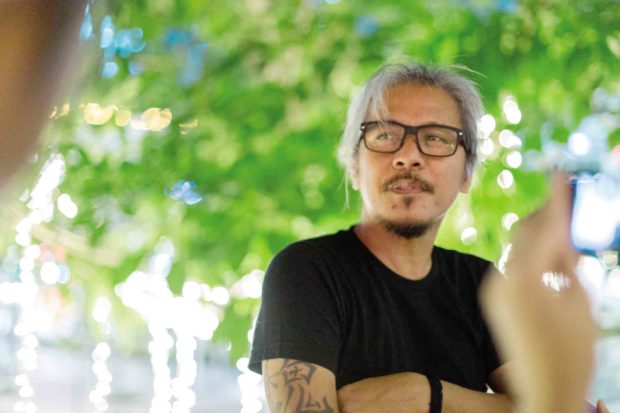The films of Filipino auteur Lav Diaz are showcased in a retrospective, ongoing in Barcelona, Spain, until July 24.
The event is spearheaded by the Film Archive of Catalonia, as part of the programming of the Grec Festival of Barcelona, which now aims to highlight Asian cinema.
According to the organizers, Diaz’s oeuvre is characterized by his “particular treatment of time and nature … his work [takes] risks when it comes to formats, techniques and length.”
Influenced by great Russian literature, Diaz is a “narrator attentive to psychological elements … with an innate gift for visual composition, mostly in black and white.”
The fest’s proponents also commend Diaz for “venturing into unexplored territory … scrutinizing the Philippines’ past and present … denouncing [the country’s] high degree of social injustice.”
They hail Diaz as an “exponent of Filipino memory” and his films as both “intimate and epic … intense portraits of individuals in existential and moral crisis … [and of a] people oppressed by the powerful who remains unpunished.”
They describe Diaz as an artist who strongly believes that “cinema can change reality.”
Among Diaz’s films that will be presented in the retrospective are “Ebolusyon ng Isang Pamilyang Pilipino” (2005), “Melancholia” (2008), “Norte, Hangganan ng Kasaysayan” (2013), “Mula sa Kung Ano ang Noon” (2014) and “Ang Babaeng Humayo” (2016).
Diaz attended the retro’s opening yesterday. Diaz told the Inquirer that the retro was “a great opportunity to have greater discourse.”
The fact that the retrospective is being held in the Philippines’ former colonizer is not lost on Diaz, as well.
“Pagkakataon ding maramdaman ko kung paano inaresto ang dakilang Pepe Rizal pagdating niya sa Barcelona … ibinalik siya agad sa Pilipinas, saka nilitis ng Kastilang kangaroo (court), at pinatay sa Bagumbayan,” he explained.
Diaz recalled that national hero Jose Rizal was arrested in Barcelona before his execution in Manila in 1896.
The acclaimed filmmaker asserted that it was vital to continue this conversation on our history, and our current situation, in the international arena.
“We should keep engaging, on all fronts—the way we conduct ourselves, the way we deal with these urgent issues,” he pointed out. “We cannot compromise the future of our country, or of the world for that matter. That’s the role of 21st-century artists and cultural workers now. Obligasyon din ’yan ng bawat mamamayan ng mundo. The zeitgeist demands for it. The world is being run by madmen and nincompoops.”
